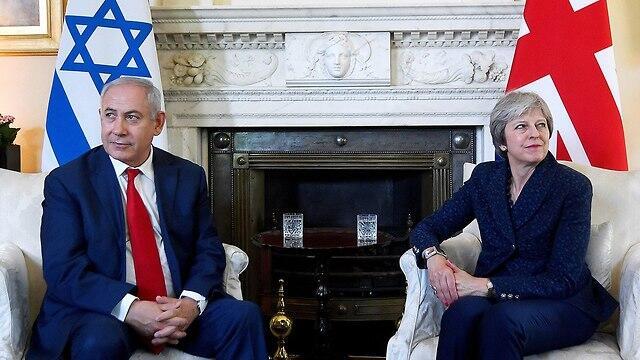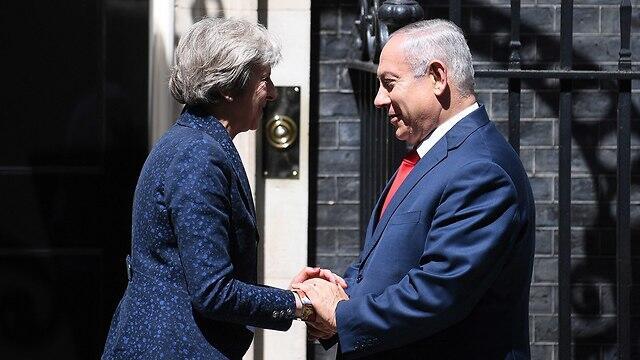Getting your Trinity Audio player ready...
LONDON - Britain is concerned about the deaths of protesters in Gaza, Prime Minister Theresa May told Israel's premier Benjamin Netanyahu on Wednesday, saying that the situation had deteriorated.
Over a hundred Palestinians have been killed in weekly demonstrations launched on March 30 in the Gaza Strip, an enclave controlled by the Islamist terror group Hamas.
"We have been concerned about the loss of Palestinian lives," May told Netanyahu ahead of talks in London, adding that Britain "absolutely recognizes" the Israel's right to self-defense against "extremists and terrorists."
"But with 100 Palestinian lives lost and a deteriorating situation in Gaza, I hope we can talk about how we can alleviate that situation, and how we can ensure that we can get back to a position where we are able to find a way through to talk about a two-state solution," May added.
Netanyahu responded that the Palestinians rioting on the Gaza border were being "paid for and pushed by Hamas" to try and breach the border and infiltrate Israel.
“I think the problems there are rooted in the fundamental goal of Hamas to destroy Israel. We are not witnessing peaceful protests,” he said.
Netanyahu and May meet in London
(צילום: לע"מ)
"In addition to burning our fields, these people are being paid for and pushed by Hamas to try to break into Israel’s defenses, kill as many Israelis as they can, right next to our border, and kidnap our soldiers," Netanyahu argued.
"We are doing everything we can to both minimize casualties and at the same time protect Israeli lives," he added.
Netanyahu is on the last leg of his three-day European tour to discuss the threat posed by Iran with May, French President Emmanuel Macron and German Chancellor Angela Merkel, in the wake of the US withdrawal from the nuclear deal signed with the Islamic Republic.
During their meeting on Downing Street, May told Netanyahu that "Along with France and Germany, the UK continues to believe (the nuclear deal) is the best route to preventing Iran from getting a nuclear weapon. We will remain committed to it as long as Iran meets its obligations."
However, she said, the UK does "recognize that there are other issues that need to be addressed in relation to Iran—its destabilizing regional activity in countries like Syria and Yemen and also the proliferation of ballistic missiles."
Netanyahu said he was focused on preventing Iran from developing nuclear weapons and on "how to roll back Iran's aggression in the region, and specifically in Syria."
"I think we can find ways to work together to achieve both goals," he added.






